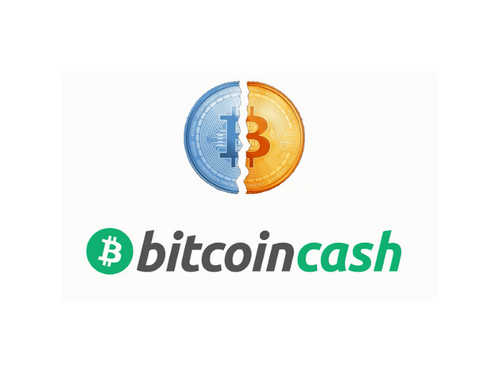Tyler Winkelvoss announced that “The Bitcoin Fund” was listed on Canada’s Toronto Stock Exchange. The Winkelvoss twins’ crypto exchange, Gemini, will act as custodian for the fund. This launch means that retail investors will be able to gain exposure to Bitcoin’s price using a traditional, regulated stock exchange.
The two largest Bitcoin forks, BCH and BSV, halved this week. BCH’s hashrate volume fell by nearly 80% following the event, as miners switched over to the original Bitcoin chain, which is now more profitable to mine given its rewards have yet to halve. The relative prices of the 3 coins are largely unchanged.
At the same time, Google Trends is showing a sharp uptick in search volume for the term “Bitcoin halving.” It’s clear that investors and traders are positioning themselves ahead of the event, occurring in roughly one month.
Class action lawsuits were filed in New York against multiple cryptos and exchanges. The companies behind TRON and EOS are being sued, as are exchanges such as BitMEX, Binance, and KuCoin. The same legal firm, Roche Freedman, which represents the plaintiff in the notorious Craig Wright case is pressing these new crypto cases, which seek various damages for fraud, price manipulation, and contravening US securities laws.
Popular decentralized exchange, Bisq, halted trading following a hack. A new version of the software was released shortly thereafter which patched the vulnerability. If you’re a Bisq user, make sure you use the upgraded software.
Before we conclude, this week’s “Bitcoin quick question” is how can I identify a Bitcoin scam?
While it takes a bit of experience to identify a Bitcoin scam there are several things you should always look out for. First and foremost make sure the person offering you the service is a real live person with a verified online identity, for example, a legitimate Facebook or LinkedIn page. Most scammers won’t have any real identifiable information.
Additionally, if something seems too good to be true, it usually is. So, for example, any website or software offering you a 20% yield per month is most likely a scam.

And finally, no legitimate site should ask you for your private key, seed phrase or any type of access to your wallet aside from your public Bitcoin address. If someone asks for any of these, run ?
There’s a lot more that can be said about scams, theft and fraud. If you want to learn more visit the link in the description and find out about our own Bitcoin scam test.
Have a question you want us to answer? Just leave it in the comment section below. And if you want to support our videos, consider using the Brave browser for faster, ad free browsing that can also earn you rewards. Just visit the link in the description below.


